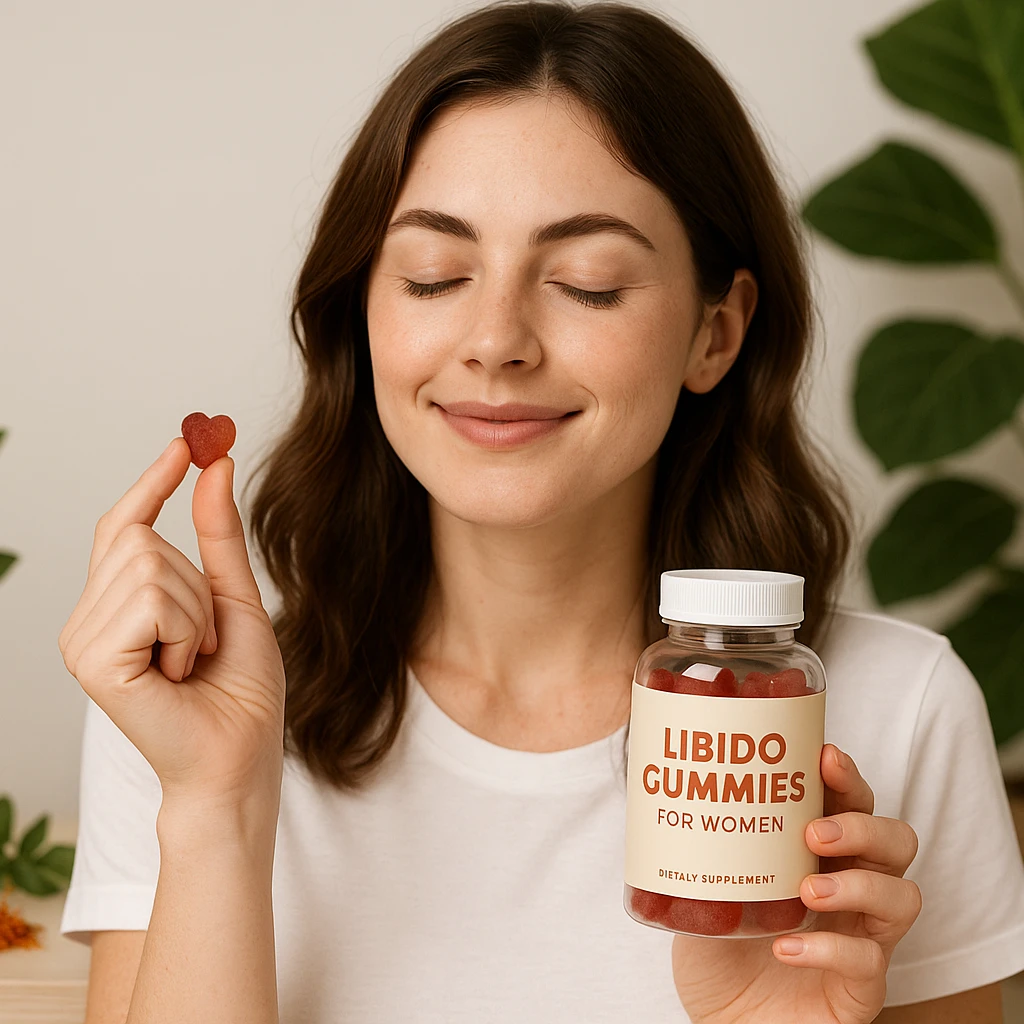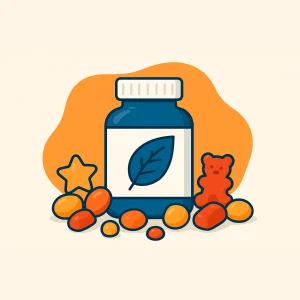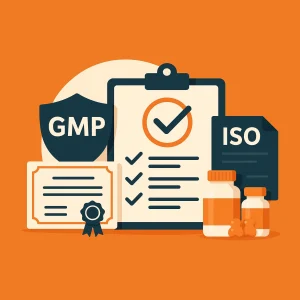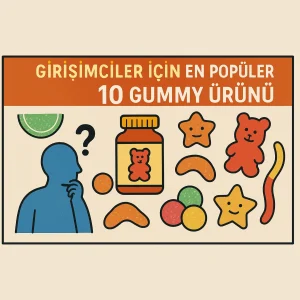In psychology, libido refers to psychological urges and energy. It is generally associated with sexual thoughts, given its nature. However, it can sometimes encompass other forms of desire as well. In everyday language, a person’s sexual desire is commonly referred to as their libido. Therefore, libido can be influenced by biological, sociological, and psychological factors. Biologically, sexual hormones that affect the nucleus accumbens, along with related neurotransmitters (such as testosterone, estrogen, and dopamine), regulate human urges. Sexual desire can also be influenced by social factors like work and family, psychological factors such as personality and stress, and medical factors like medications, lifestyle, relationship issues, and age.2
Women’s libido can fluctuate over the years. Ups and downs in desire are common at the beginning or end of a relationship. Significant lifestyle changes—like pregnancy, menopause, or illness—can also play a role. Some medications used for psychological conditions may lead to a decrease in sexual desire. If this lack of interest continues, returns, or causes personal distress, it’s a good idea to talk to a healthcare professional. You may be experiencing a treatable condition known as sexual interest/arousal disorder. But you don’t need a medical diagnosis to seek support. If you’re feeling unhappy about your libido, you can take steps to boost it. Changes in lifestyle or exploring different sexual techniques can improve your mood and desire. Certain medications may also offer promising results.3
It’s natural for men to notice a gradual decrease in libido as they age. The rate of decline can vary from person to person. However, most men maintain at least some level of sexual desire well into their 60s or even 70s. Sometimes, a drop in libido is linked to an underlying issue. Depression, stress, alcoholism, drug use, and fatigue are all common factors that may contribute to a reduced sex drive. Hormonal imbalances—especially a decrease in testosterone due to endocrine disorders—can also play a significant role. In some cases, low libido may simply be a side effect of certain medications.4
Physical Factors
A decrease in libido can be triggered by physical factors such as illness, medication, surgeries, lifestyle habits, or chronic fatigue. These can affect the body’s overall functioning and lead to a lower sex drive.
Hormonal Changes
Shifts in hormone levels—especially during menopause, pregnancy, or breastfeeding—can significantly impact libido. A drop in estrogen may cause vaginal dryness and discomfort. Meanwhile, fatigue and physical changes during pregnancy and the postpartum period can also contribute to low sexual desire.3
Psychological Factors
Psychological issues such as anxiety, depression, stress, low self-esteem, and past traumas can negatively impact libido. As mental load increases, sexual interest may decline, and individuals may feel less desire or motivation for intimacy.3
Relationship Problems:
Emotional intimacy is a key component of sexual desire. That’s why relationship issues can lead to a decrease in libido. Difficulty forming emotional bonds, unresolved conflicts, lack of trust, concerns about a partner’s performance, and poor communication—especially when it comes to expressing sexual needs—can all contribute to a decline in sexual interest.3
There are various methods used in traditional medicine across different cultures to address these issues and their solutions. One of these approaches is harnessing the power of nature. Herbal extracts derived from plants, along with supplements made from them, support a solution-focused approach. Here are some of those medicinal plants:
Tribulus Terrestris: Tribulus terrestris has long been used as an aphrodisiac due to its potential to influence sex hormones. A study conducted on women showed an increase in sexual desire after 90 days of usage. Similarly, it may also increase libido in men. However, the exact mechanisms behind these effects are not yet fully understood, and further research is needed.5,6
Tongkat Ali: This plant, which originates from Southeast Asia, has the potential to increase testosterone levels. It may be effective for issues such as low libido and erectile dysfunction caused by testosterone deficiency. However, more scientific research is needed to validate these effects.7
Maca Root: Maca, which is native to Peru, is known for its libido-enhancing effects. Some studies suggest that regular intake of maca may increase sexual desire. Additionally, it might help improve mood, reduce anxiety, and boost energy. However, further studies and clinical data are required to fully support these claims.8
Ginseng: Ginseng, commonly used in traditional Asian medicine, is beneficial for overall health as well as sexual performance and satisfaction. Specifically, the ginsenoside content may directly impact erection and enhance blood flow to the penis by supporting nitric oxide secretion.9,10
Ashwagandha: Ashwagandha is known to support women’s health through its stress-relieving and balancing effects. With its aphrodisiac properties, it may help increase libido. A 2023 study showed that it positively influenced women’s sexual pleasure and overall experience
Damiana: Damiana is known to help increase sexual desire. Its flavonoid compounds contribute to enhanced libido, improved orgasm quality, and better vaginal lubrication. Clinical studies have shown its effectiveness particularly in women over the age of 40.
Saffron: Saffron, one of the traditional aphrodisiacs, may support improvements in erectile dysfunction, sexual pleasure, and arousal. Some studies suggest that saffron intake can reduce sex-related pain while increasing lubrication and desire.12,13
Epimedium (Horny Goat Weed): Commonly used in traditional Chinese medicine, this herb is known for its supportive effects on sexual function. It contains compounds that enhance blood flow and has estrogen-like effects, making it particularly beneficial for postmenopausal women. It is also used in the treatment of erectile dysfunction in men.14,15
L-Arginine: L-arginine supports nitric oxide production, which increases blood flow to the genital area, thereby helping enhance sexual desire and pleasure. Research shows that L-arginine combinations lead to significant improvements in sexual function, especially in women with low libido.16
Your Gummie Women Libido content:
✔ Maca root (50 mg)
✔ Tribulus Terrestris (20 mg)
✔ Panax Ginseng (20 mg)
✔ Epimedium (Horny Goat Weed) (20 mg)
✔ L-Arginine (20 mg)
These ingredients used for libido support have recently become especially popular in gummy formats, thanks to their convenience. Supplements in gummy form are not only easy to carry but also offer a more appealing taste experience for users.
Is the Content List Transparent?
Instead of vague terms like “herbal blend,” it’s important for products to clearly list each ingredient along with its amount to ensure safe use. In chewable gel-form supplements, taste is just as important as transparency. High-quality products should not only deliver effective dosages but also offer a pleasant taste experience for users.
Is the Dosage Sufficient and Effective?
Some brands include ingredients in much lower doses than those shown to be effective in scientific studies. To achieve real results, the amount of each ingredient must be adequate. For example, while studies suggest 1.5–3 grams of maca to be effective, a product containing only 100 mg may not deliver the same benefits. Instead of expecting miracles from supplements, it’s important to understand that they are meant to support, not replace, overall wellness. Especially in gummy form, consistent use and patience are key for seeing noticeable effects on sexual health.
Brand Reliability and Production Quality
The quality of a supplement is defined by details such as being produced in GMP-certified facilities, tested by third-party laboratories, and the transparency of the company. Regardless of whether the brand is local or international, being able to access clear contact information is also an important indicator of trustworthiness.
What Should You Consider When Using Supplements?
Rather than expecting miracles, it’s important to remember that supplements are meant to support your health. Especially those offered in chewable gel (gummy) form can be easily integrated into a daily routine, and with regular use, may begin to show noticeable effects. Thanks to their gummy format, these supplements offer a more enjoyable and sustainable experience compared to traditional tablets or capsules. Consistency and patience are key for achieving benefits in sexual health—some herbal ingredients may take several weeks of use before showing results. Lifestyle factors such as getting enough sleep, eating a balanced diet, and avoiding alcohol and smoking also play a vital role. And finally, if symptoms may indicate a more serious medical condition, consulting a healthcare professional is always the most responsible approach.
Let’s discover the Women Libido Gummies, crafted with the trusted quality of Gummy Worlds and powered by effective active ingredients. These bottles hold the perfect harmony of delicious taste and a unique formulation enriched with the strength of herbal extracts. Ready to rediscover your inner energy with a formula made just for women? Support your vitality and feel empowered every day. Try it today and feel the difference!
References:
- Oxford English Dictionary (OED Online) (2nd ed.). Oxford: Oxford University Press. 1989.
- Fisher HE, Aron A, Brown LL (Aralık 2006).”Romantik aşk: eş seçimi için bir memeli beyin sistemi”.Philos. Trans. R. Soc. Lond. B Biol. Sci.361(1476):2173–86.doi:10.1098/rstb.2006.1938.PMC 1764845 .PMID17118931.
- https://www.mayoclinic.org/diseases-conditions/low-sex-drive-in-women/symptoms-causes/syc-20374554
- https://www.mayoclinic.org/healthy-lifestyle/sexual-health/expert-answers/loss-of-sex-drive/faq-20058237
- https://www.healthline.com/nutrition/tribulus-terrestris#TOC_TITLE_HDR_2
- Neychev V, Mitev V. Pro-sexual and androgen enhancing effects of Tribulus terrestris L.: Fact or Fiction. J Ethnopharmacol. 2016 Feb 17;179:345-55. doi: 10.1016/j.jep.2015.12.055. Epub 2015 Dec 28. PMID: 26727646.
- https://www.healthline.com/nutrition/tongkat-ali-longjack-review#potential-benefits
- https://www.healthline.com/health/food-nutrition/maca-recipe-drink#research
- Murphy LL, Lee TJ. Ginseng, sex behavior, and nitric oxide. Ann N Y Acad Sci. 2002 May;962:372-7. doi: 10.1111/j.1749-6632.2002.tb04081.x. PMID: 12076988.
- Leung KW, Wong AS. Ginseng and male reproductive function. Spermatogenesis. 2013 Jul 1;3(3):e26391. doi: 10.4161/spmg.26391. Epub 2013 Sep 13. PMID: 24381805; PMCID: PMC3861174.
- https://www.healthline.com/health/what-does-ashwagandha-do-for-women#sexual-function
- Kashani L, Aslzadeh S, Shokraee K, Shamabadi A, Tadayon Najafabadi B, Jafarinia M, Esalatmanesh S, Akhondzadeh S. Crocus sativus (saffron) in the treatment of female sexual dysfunction: a three-center, double-blind, randomized, and placebo-controlled clinical trial. Avicenna J Phytomed. 2022 May-Jun;12(3):257-268. doi: 10.22038/AJP.2022.19714. PMID: 36186931; PMCID: PMC9482709.
- https://www.healthline.com/nutrition/saffron#aphrodisiac
- Edwards, Sarah & Rocha, Inês & Williamson, Elizabeth & Heinrich, Michael. (2015). Horny Goat Weed. 10.1002/9781118543436.ch58.
- https://www.webmd.com/vitamins/ai/ingredientmono-699/horny-goat-weed
- https://www.womenshealthnetwork.com/sexual-health/l-arginine-to-boost-libido/#:~:text=Once%20it%20gets%20in%20your,the%20flow%20of%20oxygenated%20blood






